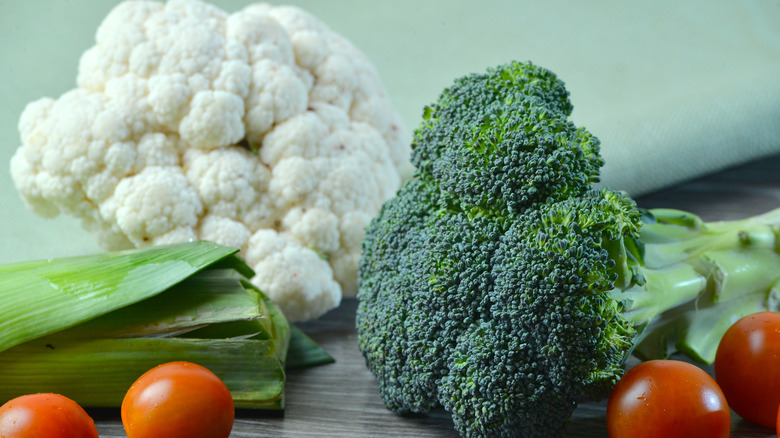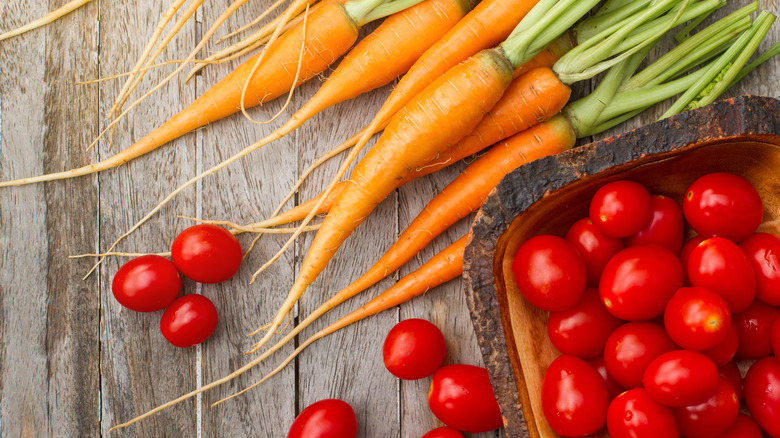Vegetables To Avoid If You Have IBS
Irritable bowel syndrome (IBS) is a chronic gastrointestinal disorder characterized by abdominal pain and changes in bowel movements. While the exact cause of IBS is unknown, certain foods can irritate your IBS and trigger uncomfortable digestive symptoms, like bloating, cramping, gas, constipation, and diarrhea (via Greatist). Different foods will affect different people, but as a general rule of thumb, foods that contain FODMAPs, or fermentable carbohydrates, will likely be more difficult to digest and could trigger a flare-up.
Unfortunately, this means that you may need to steer clear of some of your favorite vegetables. If you have IBS, you should avoid eating certain vegetables that could irritate your IBS, some of which include garlic, onions, and cruciferous vegetables. Garlic and onions contain fructans, a type of carbohydrate that is difficult to digest and break down in the intestines. Eating them may result in painful gas and bloating. Cruciferous vegetables, like broccoli, cauliflower, and Brussels sprouts, are also difficult for the body to digest and may cause gas and constipation.
Which vegetables can you eat if you have IBS?
Having IBS can certainly limit the number of vegetables you can eat, but luckily there are plenty of other nutrient-rich vegetables to choose from that are more easily digestible. For example, vegetables that are low in fermentable carbohydrates are less likely to irritate your IBS and cause discomfort (via Livestrong). That's because low-FODMAP vegetables are easier to digest and break down in the small intestine.
Some vegetables you can enjoy if you have IBS include carrots, celery, green beans, eggplant, zucchini, cucumber, peppers, okra, squash, sweet potato, yam, tomato, potato, bok choy, bean sprouts, and chives. Leafy greens like spinach and arugula are also relatively safe to eat. While this list is a good general rule of thumb, the only way to know which vegetables trigger your IBS is to gradually eliminate certain foods from your diet and then reintroduce them in phases (via Healthline). Doing this will help you understand which vegetables your stomach can and cannot tolerate.


